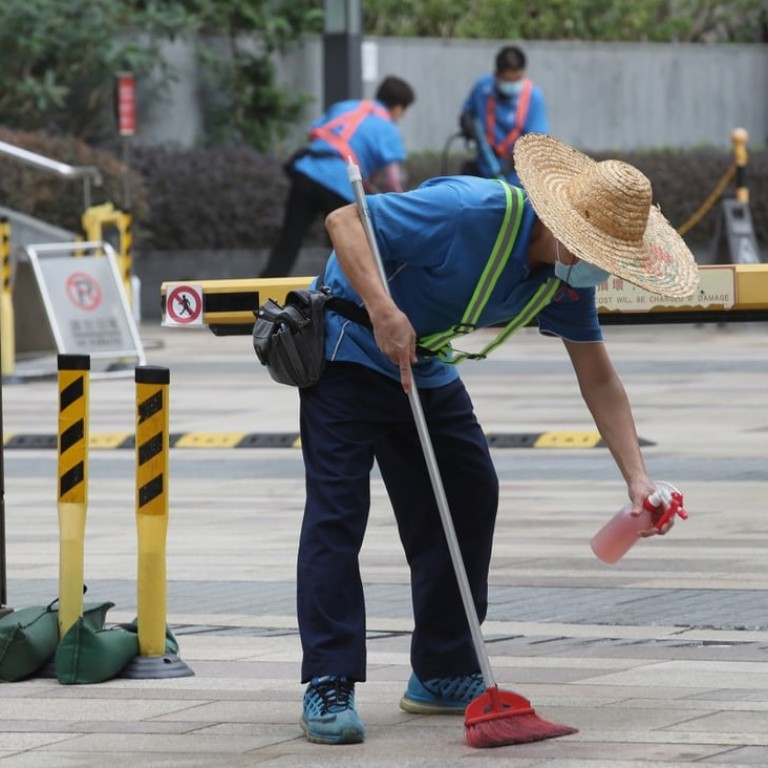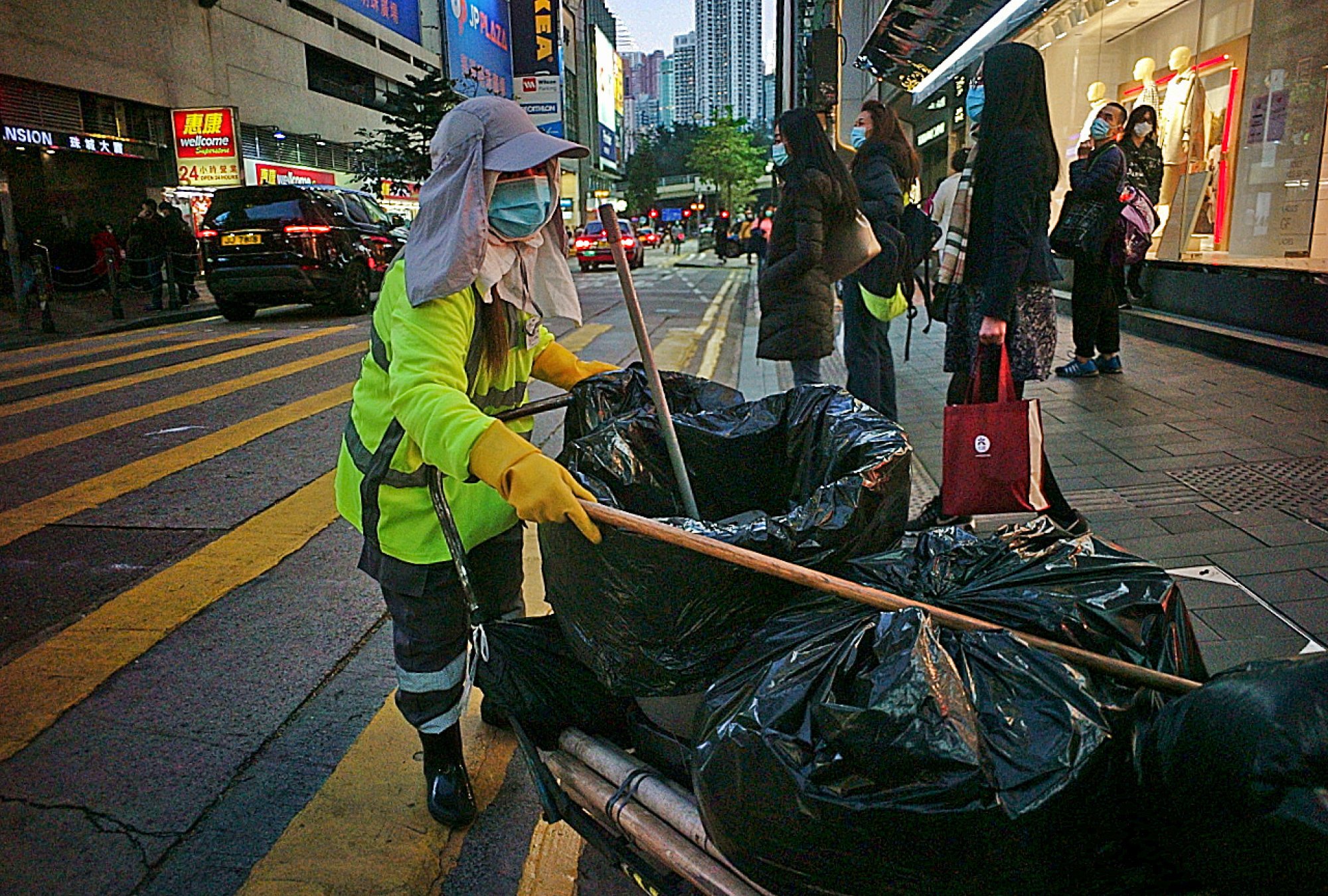
Hong Kong minimum wage to rise by HK$2.50 to HK$40 an hour in May after 4-year freeze
- Executive Council endorsed recommendation by Minimum Wage Commission in a December meeting, source says
- Further details to be announced at a Labour Department briefing
Almost 90,000 of Hong Kong’s lowest-paid workers will get HK$2.50 (US 32 cents) an hour more after an increase in the minimum wage to HK$40 an hour was agreed after a four-year freeze.
But it was estimated the increase of about 6.7 per cent could add as much as HK$910 million a year to wages bills for employers.
The increase, announced by the government on Tuesday, would bump up the pay of as many as 87,000 workers, mostly in security and cleaning jobs, the government-appointed Minimum Wage Commission said. The new rate would come into force in May, after its expected approval by the Legislative Council.
The figure of 87,000 workers was based on the 2021 government data, according to the commission.
“We believe the new rate can strike the right balance between the objectives of forestalling excessively low wages and minimising the loss of low-paid jobs,” Priscilla Wong Pui-sze, the commission chairwoman, said.

The commission approved the increase after reaching a consensus in October after a review that began last April.
A source said the commission submitted its recommendations to the Executive Council, which endorsed the suggestions at a meeting last month.
Acting government economist Desmond Hou Ka-chun highlighted official estimates that the new rate could benefit as many as 87,000 workers who made less than HK$40 an hour.
Hou said the 6.7 per cent increase was higher than the accumulated 5.4 per cent inflation rate since the last rise in 2019. The new amount struck a balance, as an official assessment found that if the rate had been set at HK$44 an hour, as many as 19,800 workers could have lost their jobs, pushing the unemployment rate up 0.54 percentage points. The jobless rate dropped to 3.7 per cent in the September to November period, marking the seventh consecutive decline last year.
Hong Kong introduced the statutory minimum wage in 2011 to provide protection for low-paid employees and set the amount at HK$28 an hour. The rate was increased every two years and hit HK$37.50 in 2019.
But the amount was frozen in 2021 for the first time. Authorities blamed an economy battered by the effects of the coronavirus pandemic for the change in policy.
Hong Kong minimum wage ‘to be raised to HK$40 an hour’ after 4-year freeze
Simon Wong Kit-lung, the chairman of catering company LH Group, said the increase was “acceptable” and that he appreciated there had not been an adjustment for four years.
But he warned the move would push up wage bills because employers would have to adjust the pay of other workers after the minimum wage for lower-paid workers increased.
Legislator Michael Luk Chung-hung, of the Federation of Trade Unions, said he was disappointed and said the new rate just caught up with inflation over the past few years.
“It is the bottom line that we can accept,” Luk said.
He also dismissed fears that a higher minimum wage would harm the economy.
“Increasing wages can attract more people to enter the job market and thus it can ease the labour shortage,” Luk maintained. “When workers get more take-home pay, they will spend more and it will push up consumption. It is actually doing much good to the economy.”
Luk added that the minimum wage should be reviewed every year, instead of the present two years.
Hong Kong to consider adjusting minimum wage review process, labour chief says
Ng Siu-kuen, a security guard at a block of flats in Causeway Bay, who has worked in the sector for four years and is paid HK$37.50, said that the HK$2.50 an hour bump was insufficient and would not make a significant difference to him.
“Of course the increase is not enough. It can’t match the inflation rate. By the time authorities finish their discussions on increasing the minimum wage and actually put it in place, prices will have risen much further,” the 70-year-old said.
“Food is more expensive in this district. When I buy a lunchbox, it already costs more than one hour of wages,” Ng, who lives in Kwai Chung, said.
Dr Thomas Yuen Wai-kee, an assistant professor at Shue Yan University’s department of economics and finance, said he was satisfied the new rate was suitable, given the economy was still to recover from the Covid-19 slump.
“When the economy is picking up, the demand for labour is expected to increase and it will drive up wages anyway,” Yuen said. “From the workers’ stance, of course, it would be better if the hourly rate was set higher. But we have to appreciate that the economy is just starting to recover and there are still many uncertainties ahead.”
Secretary for Labour and Welfare Chris Sun Yuk-han said the government was satisfied the commission had taken into account Hong Kong’s economic growth and competitiveness when it suggested the new rate.
“The government accepts the recommendation of the commission and considers that the new rate will be conducive to the overall interest and development of Hong Kong,” Sun said.



